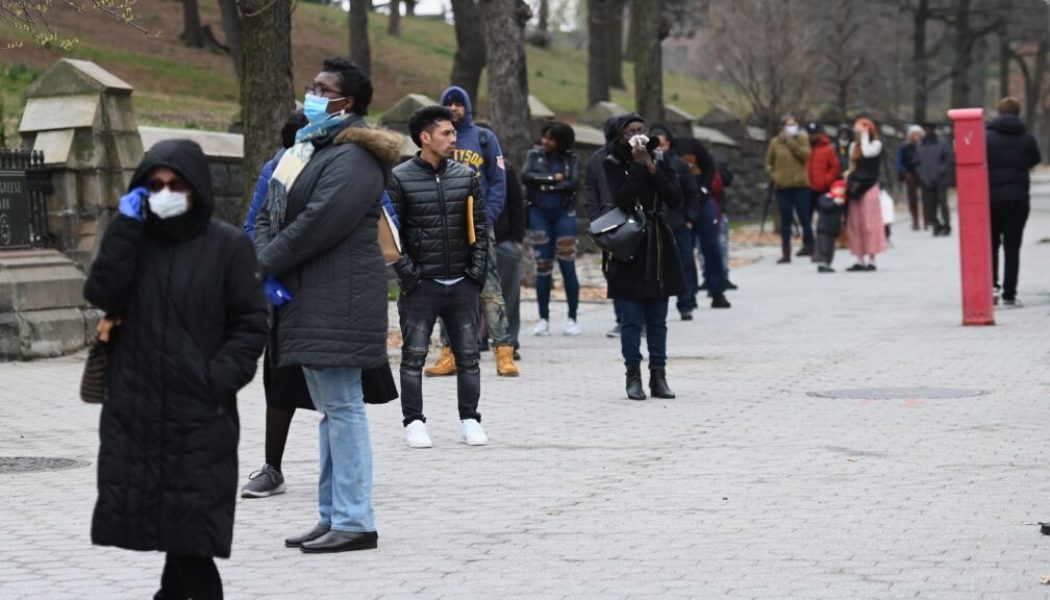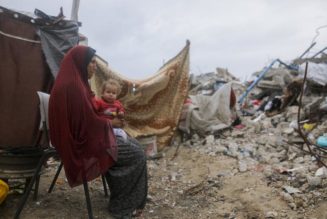
There is a desperate need for new medicines to treat Covid-19, the disease caused by the novel coronavirus that has shut down much of the world. A vaccine to prevent infection entirely would be even better.
Drug companies and medical researchers are making heroic efforts to deliver new medicines. Several dozen are now in development, and you can see highlights of those efforts here. Studies so far are mostly small and lack real control groups, making it hard for researchers to be sure of their conclusions.
Doctors on the front lines have been trying older medicines, such as the malaria drugs hydroxychloroquine and chloroquine, in the hopes that they will prove effective. Large studies of such medicines are already in process.
advertisement
But the relentless pace of the virus’ spread and a sense of desperation can only do so much to speed up the development of new medicines. Normally, the process to develop new medicines can take a decade or more. And many experimental medicines fail. When it comes to infectious disease treatments, data from the Biotechnology Innovation Organization put the success rate of new medicines just starting clinical testing at 1 in 5.
Is there hope that something will be available soon to help us fight this virus, known as SARS-CoV-2? Here’s a look at what’s on tap and how soon it could be ready. For almost any treatment or preventative, supply could be an issue if large numbers of people need it. Lastly, please note: Some of these timelines could shift, and some of these treatments and vaccines are likely to fail. That is the unfortunate reality of how medicine works.
advertisement
Existing antiviral medicines
Timeline: Available now, but efficacy testing could take a month or more.
An existing, easy-to-produce medicine that proved effective at treating or preventing SARS-CoV-2 infection would provide the fastest relief for patients and doctors. The early hope is on hydroxychloroquine and chloroquine, and many hospitals, including the University of California, San Francisco, and the University of Washington, include them in their treatment guidelines. Some doctors are combining hydroxychloroquine with azithromycin, an antibiotic. Much of the published evidence comes from a very small French study and reports from China. Larger, more rigorous clinical trials are starting, but they will take time. Favipiravir, a flu drug shown in Japan, appeared beneficial in another small study. These medicines, especially the malaria drugs, which are being mass-produced, will be used by doctors on the front lines, but we will have to wait for evidence of whether they are benefitting patients and how much.
Remdesivir
Timeline: First data could come in April
Remdesivir, an antiviral medicine that failed as an Ebola treatment, was initially developed to work against a different coronavirus. There’s some evidence that it benefits Covid-19 patients. Its maker, Gilead, has been working with researchers and governments around the world to get clinical trials up and running. The company has said to expect results in April. Six large studies are in progress, with the first, in severely ill patients in China, due to finish as early as April 3, according to a government website. A study in patients with milder disease will also finish in April, with two more due in May. In the meantime, Gilead has made the drug available to hundreds of patients on a compassionate use basis. However, it recently said that, due to overwhelming demand, it would suspend access to the drug for all but pregnant women and children as it works to create a more systematic way of giving it out without interfering with clinical trials. This new system should be in place soon. Remdesivir must be given intravenously.
Convalescent plasma
Timeline: May see some use immediately, but research could take months
It’s an old idea that has proven effective in other epidemics: give patients who are sick blood plasma from those who have recovered. It can work because the plasma contains antibodies against the virus, weaponizing the immune system of the sick patient.
One recent study from China reported that of 10 patients given convalescent plasma, seven saw their viral loads become undetectable; it noted other improvements in their condition.
Takeda is developing a more refined version of this approach that uses more concentrated antibodies taken from blood. Julie Kim, the president of the company’s blood products division, said last Wednesday on a conference call with reporters organized by PhRMA, the trade group, that the product may be available in nine to 18 months.
Arthritis drugs
Timeline: Data could be available by summer; drugs available now
Drugs against autoimmune diseases like rheumatoid arthritis work by tamping down the immune system. This could, ironically, be useful against in Covid-19, because the SARS-CoV-2 virus can make the body overreact, causing what’s called a “cytokine storm,” damaging the body.
Actemra, one such drug made by Roche, is approved for treating the cytokine storm when it is caused by cancer treatments. An unpublished 21-patient study in China showed Actemra reduced fevers and need for supplemental oxygen. Two other firms, Regeneron and Sanofi, launched a study of their similar drug, Kevzara, in Covid-19 patients; the pair has said results on fevers and oxygen use could be available as early as April. Roche has begun its own study of Actemra in the U.S. Both Actemra and Kevzara are artificial antibodies that target a protein involved in the immune system called IL-6, and are given by injection.
Artificial antibodies against the virus
Timeline: Potentially early fall
Many of the pharmaceutical industry’s best-sellers are what are called monoclonal antibodies, which are antibodies developed in mice and then made into drugs that can be injected into patients.
A manufactured antibody, or a mix of manufactured antibodies, might have a more consistent impact than using blood plasma, and it can be off-the-shelf. Regeneron, the Tarrytown, N.Y., biotech, had success developing a mixture of antibodies against Ebola; it is now selecting two to use against SARS-CoV-2, with the expectation that trials could start by early summer. If all goes well, it could be available by early fall for some uses, like treating extremely sick patients. Eli Lilly, working with a Vancouver startup called AbCellera, has said it hopes to start trials of a similar approach within four months. Vir Biotechnology and Biogen are following a similar path. Antibodies might also be used to prevent infection, but that could take longer to test in studies.
New antivirals
Timeline: 2021 at the earliest
If existing antivirals cannot control SARS-CoV-2, brand new medicines may be needed. But this process is at square one, and even moving at full-speed could eat up months. Efforts are underway to search chemical libraries for medicines that could prove effective by the Bill and Melinda Gates Foundation and others. If they can find medicines that have gone through some previous testing, as remdesivir has, that could hasten the process.
Vaccines
Timeline: Late 2021, possibly many years
There is one approach that could deliver a vaccine faster than others: It uses messenger RNA to make cells produce proteins that could lead to immunity. This approach has never been used in a widely available vaccine. The biotech Moderna is in the lead here, but others, such as BioNTech, working with Pfizer, are working on a similar approach.
It could take 18 months to be sure that approach works and is broadly safe. Even with increased manufacturing capacity, supply could be a problem. Other approaches are being developed in tandem, including one from Sanofi, now used for flu vaccines, that manufactures vaccines in insect cells. However, Moderna said in a filing with the SEC Monday that its vaccine might be available for some groups, including health care workers, as early as fall 2020.
“If you look across the many programs that have been launched, if you look at history, not all of those programs will be successful,” said Rajeev Venkayya, president of Takeda’s global vaccines unit, during a press conference last week. “And I think that is something that I don’t think we’ve effectively communicated to the public. Just because we start a vaccine program doesn’t mean that we will definitely get a vaccine on the other end.”
The good news about having so many efforts in progress, he said, is it increases the chances that one will succeed.









